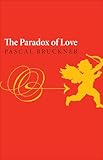The Paradox of Love / Pascal Bruckner.
Material type: TextPublisher: Princeton, NJ : Princeton University Press, [2012]Copyright date: ©2012Edition: Course BookDescription: 1 online resource (272 p.)Content type:
TextPublisher: Princeton, NJ : Princeton University Press, [2012]Copyright date: ©2012Edition: Course BookDescription: 1 online resource (272 p.)Content type: - 9780691149141
- 9781400841851
- 306.709 23
- HQ801 .B873513 2011
- online - DeGruyter
- Issued also in print.
| Item type | Current library | Call number | URL | Status | Notes | Barcode | |
|---|---|---|---|---|---|---|---|
 eBook
eBook
|
Biblioteca "Angelicum" Pont. Univ. S.Tommaso d'Aquino Nuvola online | online - DeGruyter (Browse shelf(Opens below)) | Online access | Not for loan (Accesso limitato) | Accesso per gli utenti autorizzati / Access for authorized users | (dgr)9781400841851 |
Frontmatter -- Contents -- Introduction -- Part I. A Great Dream of Redemption -- 1. Liberating the Human Heart -- 2. Seduction as a Market -- 3. I Love You: Weakness and Capture -- Part II. Idyll and Discord -- 4. The Noble Challenge of Marriage for Love -- 5. Fluctuating Loyalties -- 6. The Pleasures and Servitudes of Living Together -- Part III. The Carnal Wonder -- 7. Is There a Sexual Revolution? -- 8. Toward a Bankruptcy of Eros? -- Part IV. The Ideology of Love -- 9. Persecution in the Name of Love: Christianity and Communism -- 10. Marcel Proust's Slippers -- Epilogue. Don't Be Ashamed! -- Afterword. Pascal Bruckner's Paradoxes -- Notes -- Index
restricted access online access with authorization star
http://purl.org/coar/access_right/c_16ec
The sexual revolution is justly celebrated for the freedoms it brought--birth control, the decriminalization of abortion, the liberalization of divorce, greater equality between the sexes, women's massive entry into the workforce, and more tolerance of homosexuality. But as Pascal Bruckner, one of France's leading writers, argues in this lively and provocative reflection on the contradictions of modern love, our new freedoms have also brought new burdens and rules--without, however, wiping out the old rules, emotions, desires, and arrangements: the couple, marriage, jealousy, the demand for fidelity, the war between constancy and inconstancy. It is no wonder that love, sex, and relationships today are so confusing, so difficult, and so paradoxical. Drawing on history, politics, psychology, literature, pop culture, and current events, this book--a best seller in France--exposes and dissects these paradoxes. With his customary brilliance and wit, Bruckner traces the roots of sexual liberation back to the Enlightenment in order to explain love's supreme paradox, epitomized by the 1960s oxymoron of "free love": the tension between freedom, which separates, and love, which attaches. Ashamed that our sex lives fail to live up to such liberated ideals, we have traded neuroses of repression for neuroses of inadequacy, and we overcompensate: "Our parents lied about their morality," Bruckner writes, but "we lie about our immorality.? Mixing irony and optimism, Bruckner argues that, when it comes to love, we should side neither with the revolutionaries nor the reactionaries. Rather, taking love and ourselves as we are, we should realize that love makes no progress and that its messiness, surprises, and paradoxes are not merely the sources of its pain--but also of its pleasure and glory.
Issued also in print.
Mode of access: Internet via World Wide Web.
In English.
Description based on online resource; title from PDF title page (publisher's Web site, viewed 29. Jul 2021)


